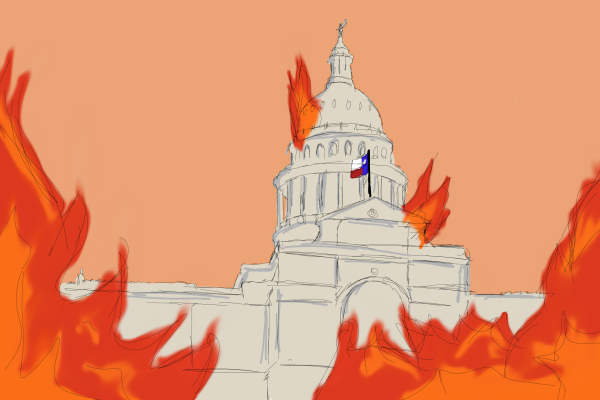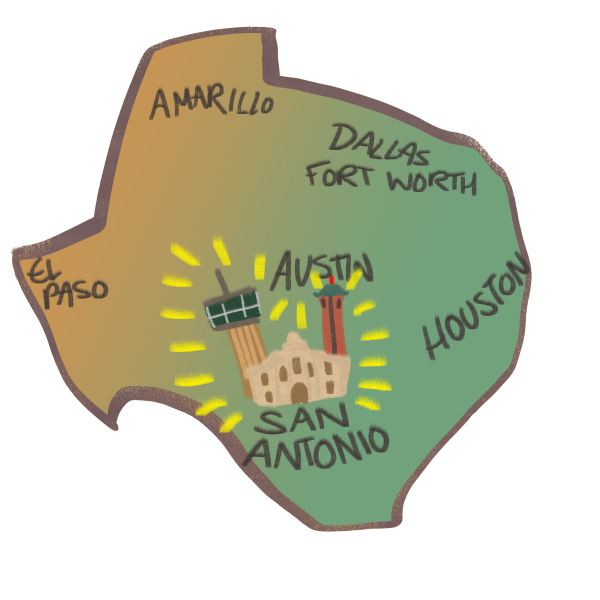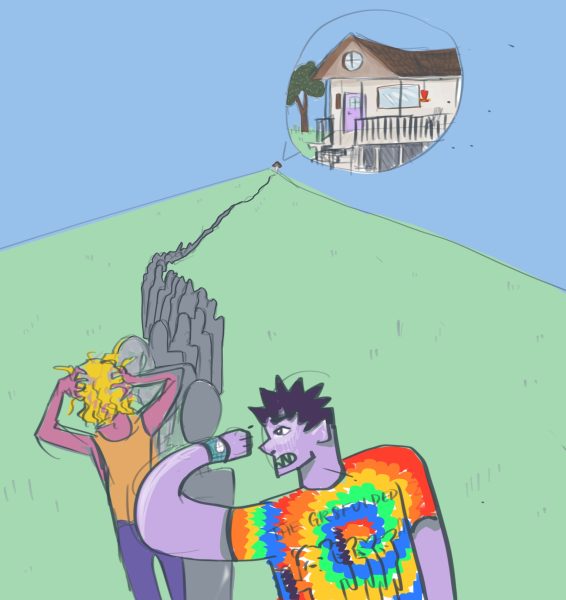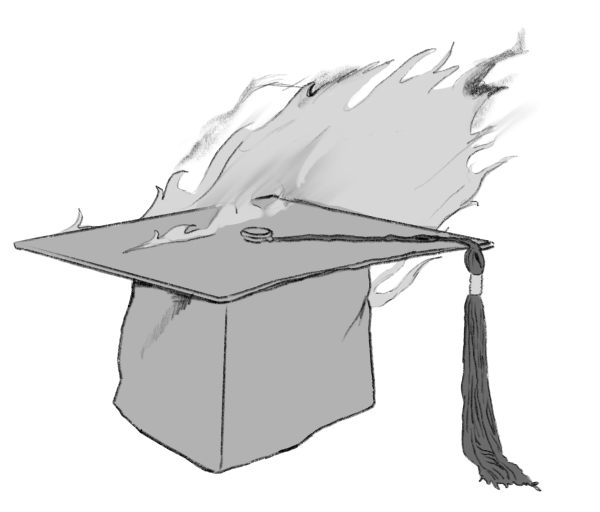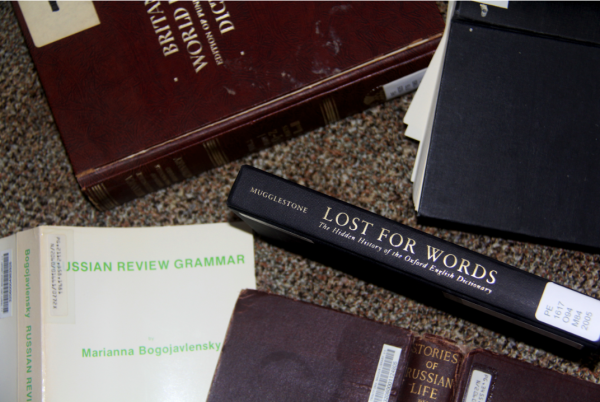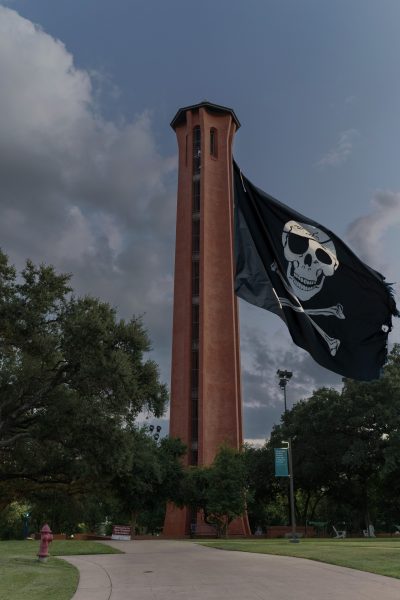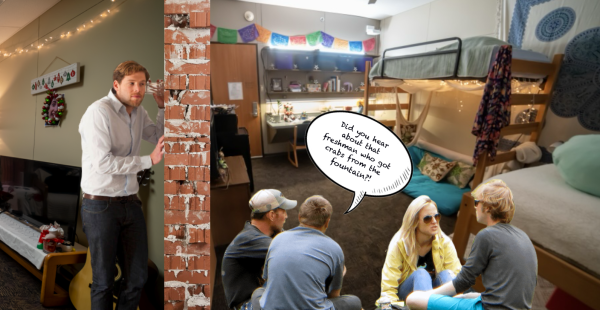Abet ecocide or divest?: The responsibility we bear
You’ve heard it all before. What we are currently living through is the most consequential emergency humanity has ever faced. If we don’t meet the climate crisis with appropriate urgency on behalf of other human and non-human beings, then much of what we value about this world will wither away for good.
Here are just some likely consequences of climate change if we choose not to radically change course: innumerably more people undernourished and starved as crop failures trigger disruptions to food supplies globally, widespread extermination of life as forests burn, ice melts and oceans acidify and millions of people displaced as entire regions of the world become uninhabitable.
What scientists predict is indeed dire, and we can see it unfolding right before our eyes with multiple natural disasters occuring in the U.S. simultaneously: flooding in the Gulf Coast and northeast from Hurricane Ida and wildfires in the west. We can’t causally link any one natural disaster to climate change, but we do know that climate change increases the intensity of these events, and that disasters of this scale were once relatively few and far between. We also know that, barring drastic changes to humans’ resource and energy use, the prevalence and severity of extreme weather will exacerbate over time.
Trinity University has postured itself as a sympathetic actor through this all. During Hurricane Harvey and most recently Hurricane Ida, Trinity sent out messages of solidarity to victims without a hint of irony. While it might be hard to swallow, the prestige of Trinity and the size of these hurricanes can be attributed to an identical source: fossil fuels. You don’t have to take my word for it; in 1981, the New York Times wrote about how Trinity owed its success to fossil fuel money, and given that climate change is primarily caused by fossil fuel combustion, we can say with certainty that Trinity’s wealth has come at the expense of large swaths of the living world.
Let’s critically examine Trinity’s relationship with fossil fuels using the following elementary moral principle: We are obligated to do what we reasonably can to prevent the people and institutions we associate with from carrying out or abetting moral crimes. In other words, we are responsible for crimes to the degree we have control over them. I think this is uncontroversial. If we discover that our friend is plotting to murder someone, we do what we can to block her plans, and if we discover that, instead of carrying out the act herself, she hires a hitman, we reiterate to our former friend that she is wrong, and we do what we can to stop a tragedy from materializing.
When we apply this principle to institutions we associate with, we find ourselves face to face with the people who pull the levers of institutional power. For instance, suppose Trinity decided to drill for fossil fuels found underneath its campus. Those of us opposed to more drilling would be up in arms, and we would demand that the trustees who signed off on this decision change course, and we would be righteous in our anger. To expand drilling operations in a society with the means to transition away from fossil fuels is a heinous criminal act — called ecocide — because the only feasible way to safely prevent ecological collapse is to rapidly scale down fossil fuel extraction.
In reality, respectable academic institutions like Trinity do not drill for oil and gas. Instead, social norms permit the abetting of these criminal acts. Much like our former friend pays a hitman to carry out homicide, Trinity pays fossil fuel companies to carry out ecocide.
One might counter that an investment portfolio dictated by the profit-motive is politically neutral and only responsive to the laws of the land, but the truth is that investing in companies that seismically threaten the survival of human and non-human animals is not neutral at all. It is a moral act that is different in form, not substance, from choosing to drill yourself. We reduce the social credibility of abusers when we cut off ties with them, thus making future abuse less likely. For the same reason, Trinity must cut off its ties with the fossil fuel industry, an industry whose existence — predicated on ecological abuse — is incompatible with a broadly liveable future.
Now, back to our core principle. The purpose of explicating this principle is twofold. It is to show why Trinity’s fossil fuel investments are wrong and why we must do our part to prevent Trinity from abetting ecocide. Once we accept this principle, the question becomes the following: What should we do about it?
Let’s start with what we shouldn’t do. We shouldn’t hedge our bets on convincing the portfolio manager and trustees that fossil fuels are relatively unprofitable (even if this is likely true). Sure, we can make the case, but it would not be enough. Trinity has deep connections with the fossil fuel industry dating back many decades. Fossil fuel companies provide scholarships, buildings and capital gains, and we return the favor with capital from our endowment, seats on the board of trustees and the social credibility that comes with treating these businesses like they are not the utterly antisocial, anti-ecological institutions they are.
So what should we do? We do what every successful grassroots movement challenging powerful interests does: We swell our numbers, and we mobilize disruptively, beating concentrated power with collective strength. Sign and share the Trinity YDSA petition. Propose a resolution to the SGA or the senate faculty. Follow Divest Trinity on Instagram, and check out the linktree. If you are especially determined or are merely curious, email me and show up to an Eco Allies meeting. Students, professors and others are clamoring for social change, and we can make it happen if you commit to doing your part.
Trinity will likely be forced to divest one day, but we have the power to make it happen now, rather than once it is far too late. Ask yourself this: If you knew that your loved ones would be victims of some future climate disaster, should it strike, what would you sacrifice now to keep them safe?
(Ethan Crane… senior philosophy major… outreach chair for Eco Allies)
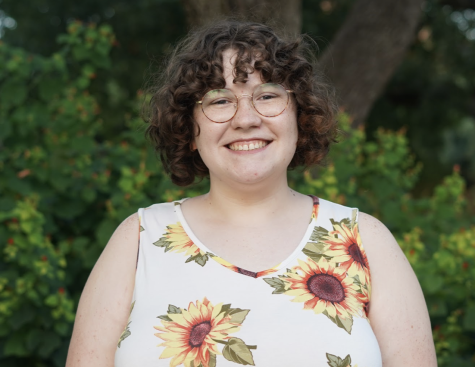
I'm a senior Computer Science major and a Classical Studies minor from Newton, North Carolina with a passion for art. I also work at the Center for Experiential...



